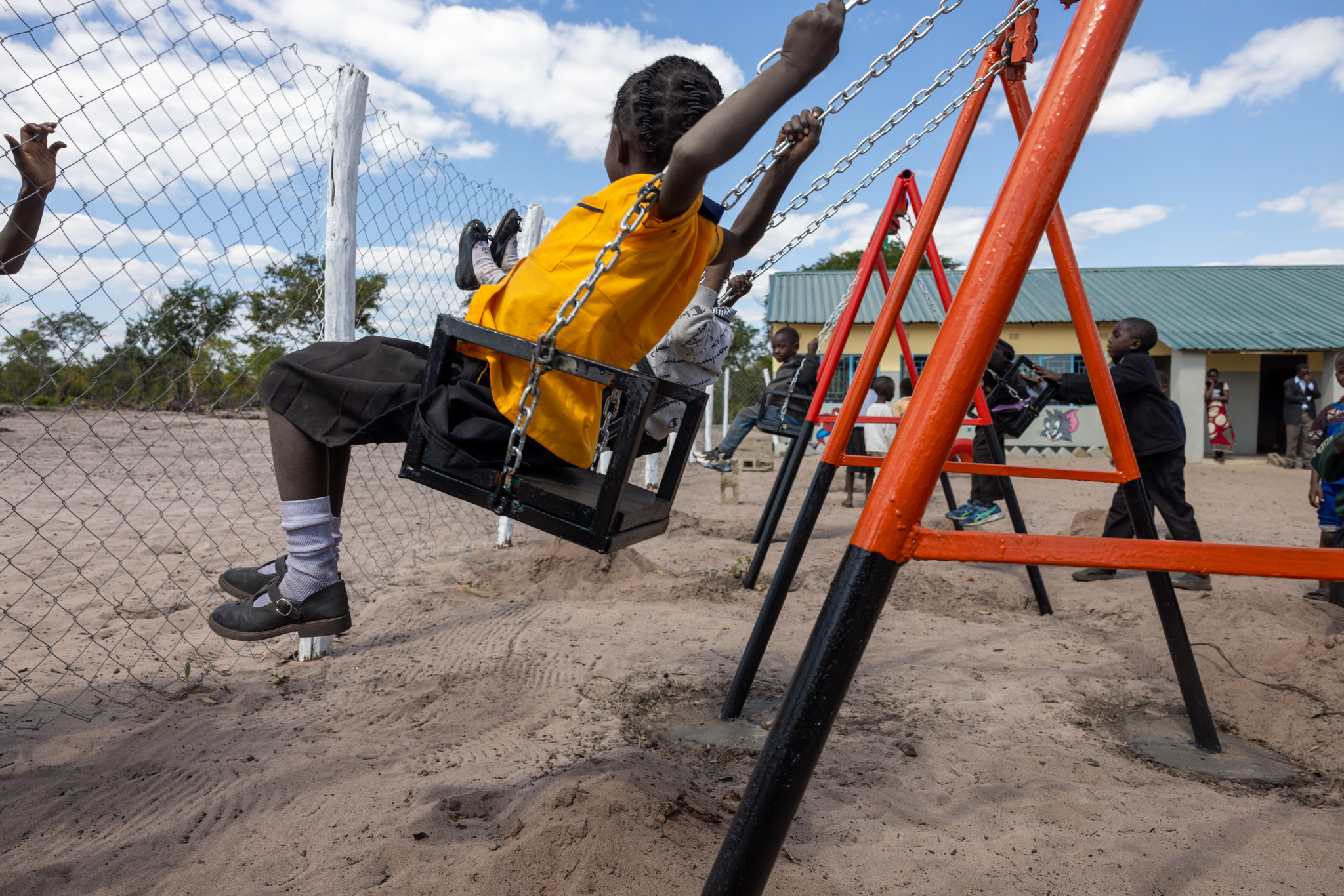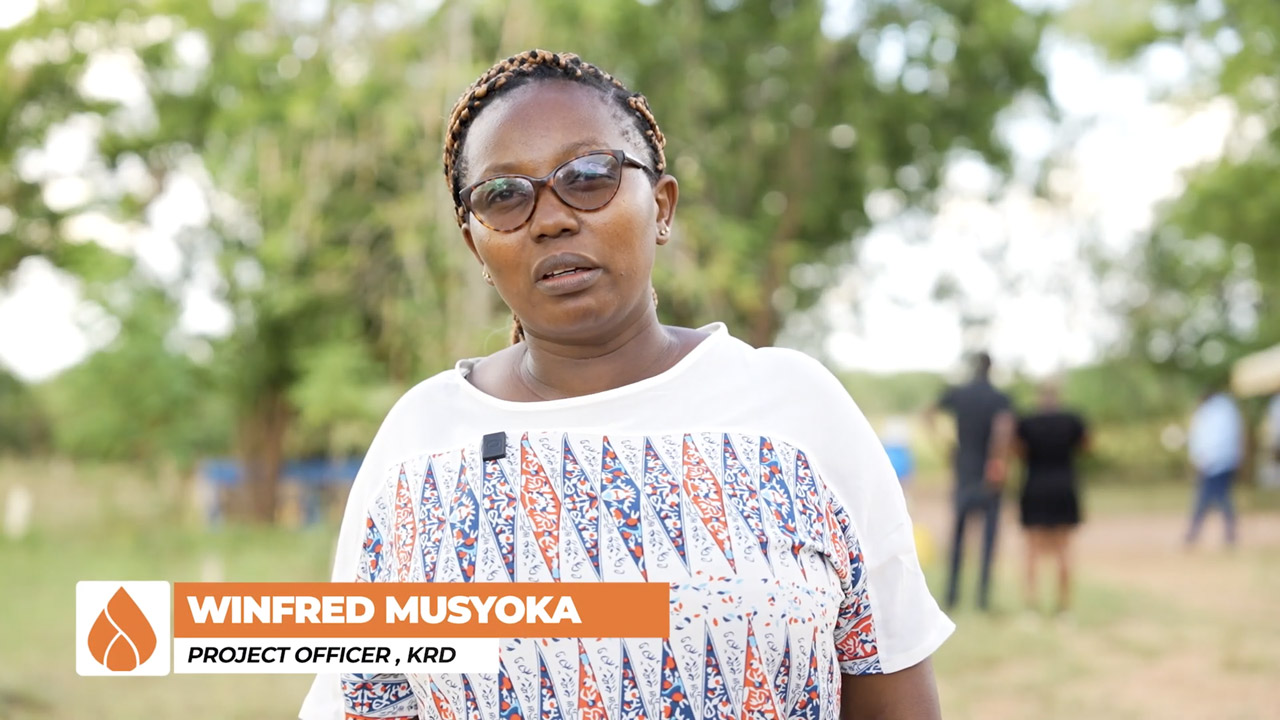The learning centre that residents built was the first of many community-driven innovations supported by our partner, Namuso Community Based Organisation

In the remote village of Nambowata, in Mongu, Western Zambia, parents recall a time when educating their young children meant sending them on a dangerous journey through dense bush to the distant early childhood education centre. It was risk they weren’t willing to take.
Parents had to watch their four and five-year olds miss the critical early learning years that could shape their entire futures and lift them from the grip of poverty.
Monde Mubhita, a parent, remembers those days vividly. "We knew our children needed education, but we could not bear the thought of them walking kilometres through areas where wild animals roam and strangers might harm them," he says. His children were growing up without the foundation skills their peers elsewhere took for granted and he feared this would create a cycle that would follow them into adulthood.
In 2020, Namuso Community Based Organisation asked local leaders a simple question: What do you need for your children? The answer was unanimous; early education that was close by and did not put their children at risk.
What followed was a remarkable display of community-driven innovation. Parents and caregivers organized themselves, agreeing that each household would contribute locally available materials. Some brought stones, others sand, many carried grass and wood. Together, they constructed their first early childhood education structure, a temporary shelter that represented their collective commitment to their children's futures.
The community did not stop there. With support from Firelight and Namuso, they identified a trained community member willing to teach and collectively took on the responsibility of paying their salary by baking and selling charcoal.
“We were determined to make this work, even if it meant extra labour for all of us,” recalls Judith Mulikelela, speaking on behalf of the parent collective.
Recognizing the community's ownership and commitment, Namuso worked alongside them to establish a more permanent centre with two classrooms and a playground. But the real transformation went deeper than infrastructure. Through Namuso's Nurturing CareFramework training on nutrition, parents like Muanei Kalalula learned that child development begins not at school enrolment, but at conception. "We discovered that the first thousand days, from pregnancy through age two, are when we lay the foundation for everything our children will become," she says.
The knowledge rippled through the community in ways no one anticipated. Parents began understanding the value of responsive caregiving. Fathers now help take care of children –not just mothers. Parents now understand that nutrition is important for building their brains not just for filling their stomachs.
Maria Katonda, another caregiver trained in nutrition, now teaches parents how goat milk supports cognitive development and why drying vegetables in the shade preserves more nutrients than drying in direct sunlight. "Share what you eat with your children because whatever is good for us is also good for our children,” she said during an information-sharing session. This awareness and understanding helped reduce malnutrition rates in children across participating households and promoted healthy child development.
Today, the transformation is visible everywhere. Children arrive at school eager not just for lessons, but also for playing on swings and see-saws. Staying active in and out of the class has greatly improved their physical and cognitive development.They are able demonstrate the kind of school readiness that opens doors to higher education.
The government, recognizing the programme's success, stepped in with regular agricultural support such as beans and maize – validating the community-led approach. The parents have also formed a registered cooperative, positioning themselves to access government funding and expand their impact. As Chief Namutwi Pelekelo observes, “Our children can now access early education and have a better chance to progress to university.”
Just as importantly, they have proven that remote communities do not need to wait for external solutions, that they can build their own pathways to transformation when given the right support and partnership.
The transformation has inspired something beautiful beyond the school walls. Parents are now bringing learning home, crafting miniature playgrounds in their own yards and creating educational toys from strings, cardboards, sticks, and reeds. Children who once had limited opportunities to develop their minds now have learning that continues from classroom to homestead.
This success has proven that powerful solutions grow from the soil of community wisdom, nurtured by partners who trust that parents and caregivers know exactly what their children need to flourish.
